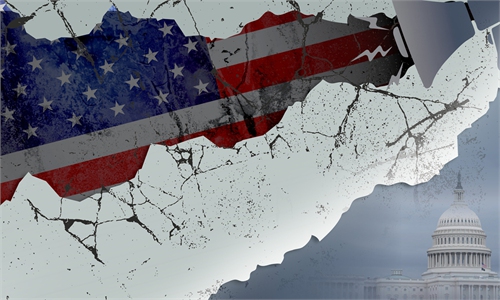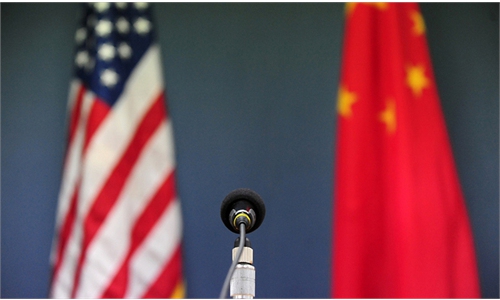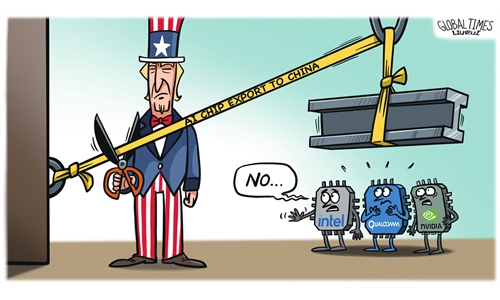Yellen's speech may signal cooperation, but US needs to make more efforts to promote China ties: analysts
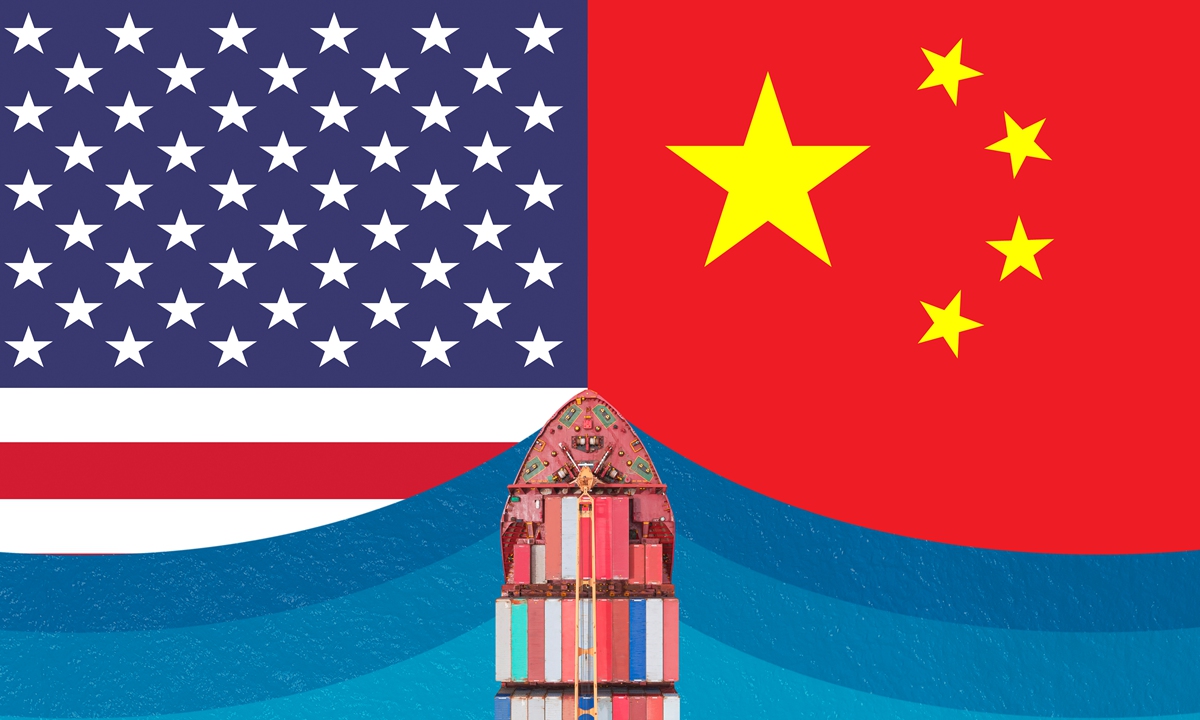
China-US Graphic: GT
While analysts said that US Treasury Secretary Janet Yellen's recent remarks signaled more cooperation between the US and China, they also pointed out that greater efforts are required from the US to promote bilateral economic and trade ties.
Ahead of a meeting of Group of 20 finance ministers and central bankers in India on Sunday, Yellen said that her four-day visit to China that ended on July 9 "served as a step forward in putting our relationship on surer footing and establishing a resilient and productive channel of communication."
"I am eager to build on the groundwork that we laid in Beijing to mobilize further action. As the world's two largest economies, we have an obligation to the people in our nations and the world to cooperate on areas of mutual concern," Yellen said.
But at a press conference after her remarks, she said that "the tariffs were put in place because we had concern with unfair trade practices on China's side and our concerns with those practices remain."
"Yellen is not in favor of imposing tariffs on China, but she is not in charge of trade policy, and the US so far has not budged on its tariff policy toward China," He Weiwen, a senior research fellow at the Center for China and Globalization, told the Global Times on Monday.
Analysts said that there were actually no "practical results" from the visits of US Secretary of State Antony Blinken or Yellen to China. Meanwhile, the ambiguity of speaking of cooperation while not dealing with bilateral disputes is showcased in the current China policy of Washington, they noted.
"Bipartisan strife is the norm of the US political environment, and China does not need to treat it so seriously, as we need to focus on our own approach and strategy toward the US," said He.
Hu Qimu, deputy secretary general of the digital real economies integration Forum 50, told the Global Times on Monday that the focus of the US on China is strategic competition.
"Under such competition, economic interests can no longer be exchanged for political compromises. Strategic competition means that the weight and importance of economic and trade cooperation are declining," said Hu.
Hu noted that the primary interest of the US now is to maintain its No.1 position in the global political and economic structures, not to achieve mutual benefit with China.
As for bilateral cooperation, Hu said that it will depend on whether the economic gap between China and the US continues to narrow and on whether the US has capped its inflation or is stuck in a recession, which will be hard to decide until the end of the year.
But analysts stressed that in climate change, China and the US have a good foundation and huge potential for cooperation. Some practical results are expected during the visit of US Special Presidential Envoy for Climate John Kerry from July 16 to 19.
With regard to jointly addressing the debt distress of many developing countries, China and the US do need to cooperate, especially under multilateral frameworks such as the IMF and the G20, He said.
Bilateral cooperation in debt relief was also mentioned by Yellen, who said that the US will continue to push for full and timely participation by all bilateral official creditors on pending debt restructuring cases. "I was pleased by last month's progress on Zambia, which I discussed with my Chinese counterparts last week."
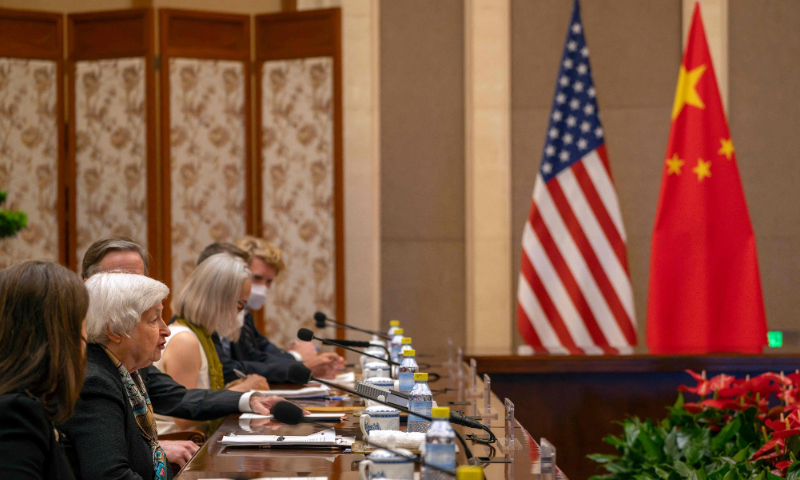
US Treasury Secretary Janet Yellen meets with Chinese officials in Beijing, on July 8, 2023. Photo: VCG
"China carries out friendly cooperation with countries on the basis of mutual respect, equality and mutual benefit. On China-US relations, we view and develop our relations with the US by following the principles of mutual respect, peaceful coexistence and win-win cooperation," Mao Ning, a spokesperson of the Foreign Ministry, said on Monday during a regular press conference."We also hope the US will work with China and bring bilateral relations back to the track of healthy and stable growth," said Mao.
